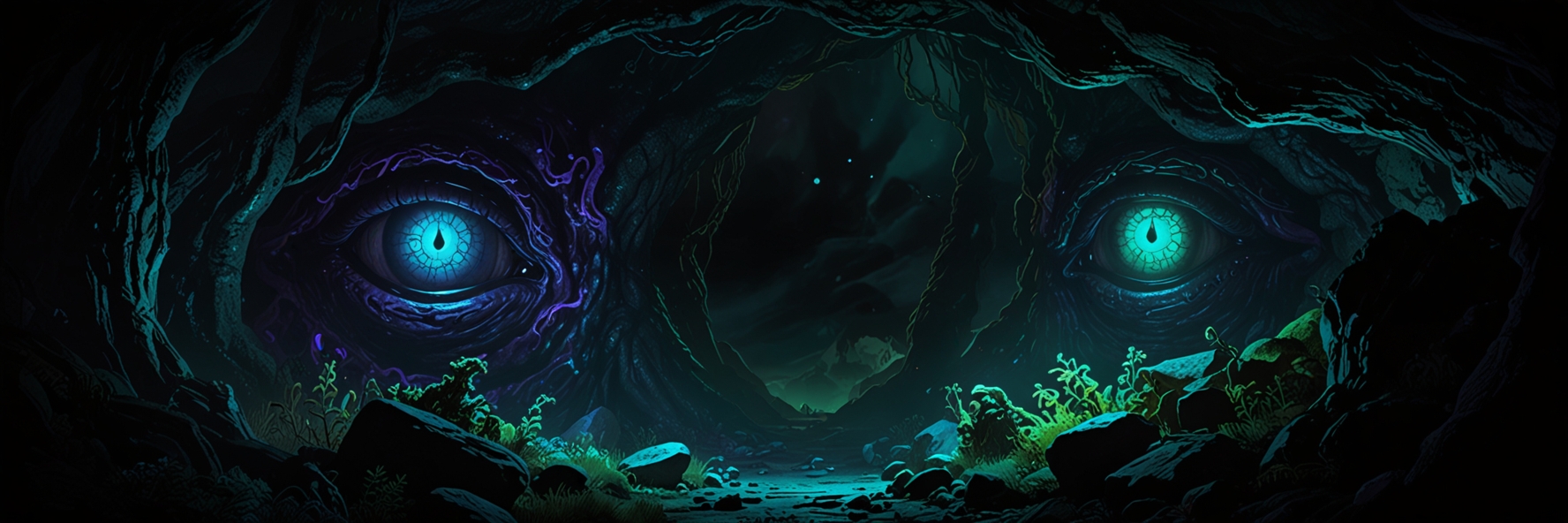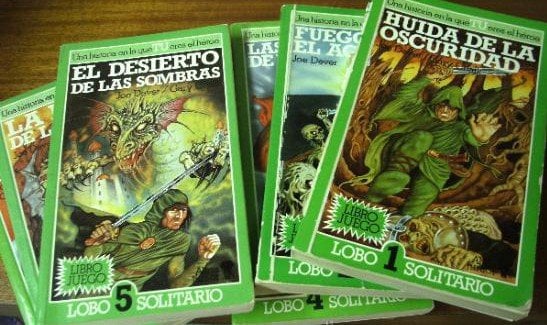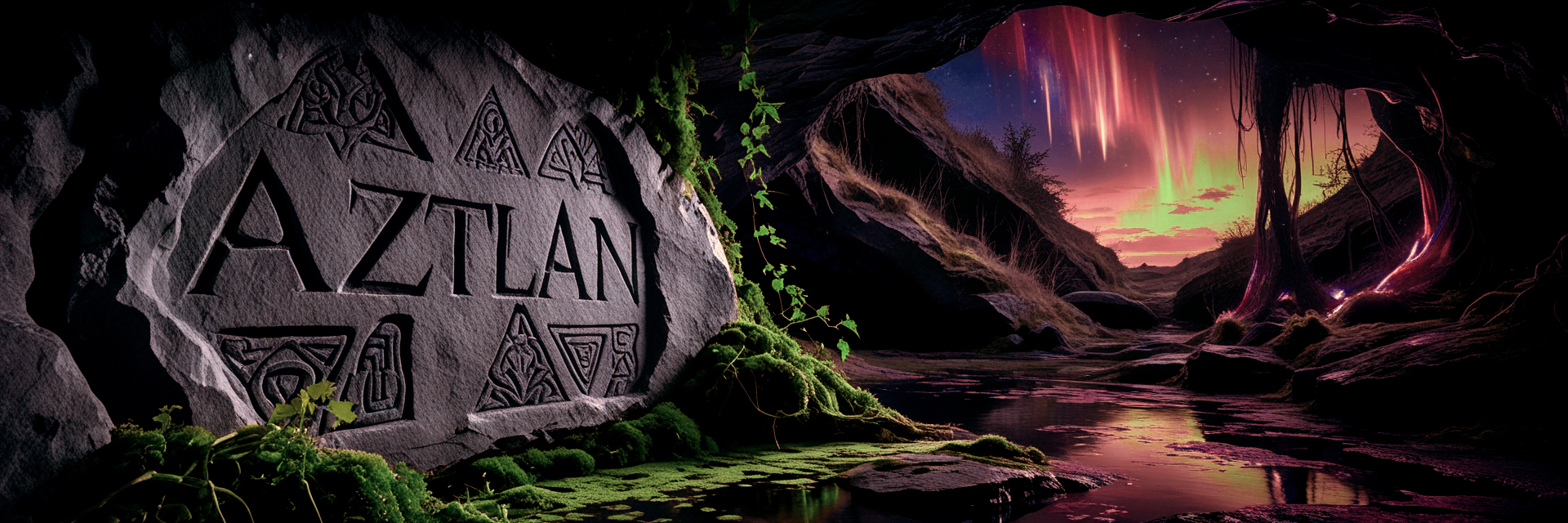Fate or Choice? Chance in Interactive Narratives
Chance as Ritual
Not as Punishment

When I started shaping Los Túneles de Aztlán, even with those early, kind of up-in-the-air ideas, I knew uncertainty was going to be a big deal. But not just any kind of chance would do. I didn't want that typical stroke of luck (or misfortune) that sometimes feels like it ignores your decisions or boils a key moment down to a simple dice roll.
I wanted a type of chance that felt different, one that vibed with the "soul" of the gamebook. One that, instead of pulling you out of the story, would draw you in deeper. Something that invited a bit of thought, not the urge to throw your dice out the window (though, hey, sometimes it happens!).
The Other Side of Chance
I’m sure many of you remember those old-school gamebooks; for example, the famous Lone Wolf series (by Joe Dever) or the intense challenges of Way of the Tiger (by Mark Smith and Jamie Thomson). In those, chance was often a constant threat. You could make the smartest decision, prepare for anything, and bam! A bad roll could take you out of the game. Sometimes, it felt like the dice mechanic carried more weight than the story you were trying to build.

The "Lone Wolf" saga, a gamebook classic where chance was crucial.
And hey, this isn't just a thing of the past. Even in awesome modern games, from board games like House of Danger (by Prospero Hall, based on the Choose Your Own Adventure series) to massive co-op adventures like Arkham Horror (originally created by Richard Launius and with tons of versions). Even in these titles, I've sometimes felt that the narrative, no matter how good, can be a bit at the mercy of a card draw or a die roll that decides something important, and maybe it doesn't always quite connect with the emotion of the moment. The story, in those cases, can feel a bit "driven" by the mechanics, don't you think?
So, it got me thinking: How do we make chance surprising and exciting, but without making players feel like their decisions are worthless or that the game is just punishing them for no reason? An interesting question, right?
When "Luck"
Feels "Off"
There are some really smart folks out there, like Jesper Juul (video game theorist and designer) or Ian Bogost (philosopher and video game designer), who have thought a lot about this. And one of the key things is that, as players, we tend to accept failure—it can even hook us to keep trying—if we feel it's a logical consequence of what we did or a well-designed challenge. The problem with chance isn't that it's uncertain; that's part of its charm! The issue is when it seems totally arbitrary: a bad roll ruins a well-thought-out strategy, and that "bad luck" doesn't make much sense within the story you're experiencing.
That’s precisely when, as a player, you can feel like something external, something unrelated to the story, just dealt you a bad hand. And that’s the feeling I wanted to avoid at all costs in Los Túneles de Aztlán.
So, for this digital gamebook, I aimed for chance to have "something more," to feel like part of a ritual, not just a random number on a screen.
The Shaman's Eyes:
A Few Clues
Searching for ideas, I started thinking about the depth of Tarot, the philosophy of the I Ching, and that special connection found in Andean shamanic rituals. With all that swirling in my head, one of the main, yet passive, mechanics of Los Túneles de Aztlán was born: the Shaman's Eyes.
It’s not your typical die that gives you a number and that’s it. Think of it more like an oracle. When you consult the Shaman's Eyes, you don’t get a simple "you win" or "you lose." Instead, you receive an omen: a slightly mysterious phrase, a mental image that suggests something, like an echo from the tunnels that the player has to interpret. This way, uncertainty becomes a little puzzle, a kind of symbolic language that’s there for you to listen to.
The important thing here isn't just what the oracle "says," but what you, as the player, do with that information. You don't lose your ability to decide; on the contrary, you gain the opportunity to interpret and give your own meaning to things.
Designing Chance with a Soul
Of course, making chance "speak" has its complexities. The idea of chance with personality is very appealing, but bringing it to a digital gamebook has its challenges:
- 🧠 Mystery vs. Clarity: You have to find that sweet spot where omens suggest things and allow for interpretation, but without being so strange that no one understands them or they end up frustrating players. The mystery needs to be an invitation, not a wall.
- ✍️ Variety and Cohesion: You need a good number of omens so they don’t repeat too often and so they fit well with the atmosphere and story of Santa Úrsula and its tunnels. That takes a good chunk of design time.
- ⏳ Development Time: Each omen, and thinking about how it might influence the character's thoughts or options, adds to the workload. And since I'm doing this on my own, well, I have to choose carefully where to invest time and effort.
How Do the Eyes Work?
Although I'll tell you more details later, here are a few hints about how this oracle shapes chance:
| 🔮 Omens That Make You Think Instead of a number, you get a short phrase, sometimes with a poetic touch, other times a bit unsettling. But its meaning transcends the words and can alter the course of the story. |
| ✍️ Context is Key You don't interpret the omen just like that. Your character's state (exhausted? hopeful?), your exact location in the tunnel, or even the objects you have can give you a clue about what it's about. |
| 🌱 Decisions That Sow Seeds An omen might not change the world instantly, but it can change how you see it. It might give you a new idea, a dialogue option that wasn't there before, or simply another way of looking at things before making an important decision. Sometimes, what you do AFTER the omen is what gradually changes things. |
| 👁️ The Tunnel Seems to Listen Occasionally, interpreting an omen and acting in a certain way can make the tunnel itself "react" in curious ways, revealing a detail you had missed or slightly changing the atmosphere of the place. |
A Glimpse at the Omens
Games like Disco Elysium (from studio ZA/UM) do this incredibly well: they show how rolls, even when they "fail," can make the story richer, opening unexpected paths and revealing more about the character. In Los Túneles de Aztlán, my idea is that every time you consult the Shaman's Eyes, it’s an opportunity to weave a story that's more your own, more personal—where if something doesn't go as expected, it's not just a "failure," but the beginning of a new way of seeing things.

Omen and consequences from the Shaman's Eyes.
Control or Interpret?
Maybe, in the end, the point isn't to eliminate uncertainty or to want absolute control over the story. Perhaps it's more about integrating chance as a way of "listening" attentively. It’s not about rolling a die and hoping for the best, but rather consulting the oracle with a willingness to receive a message, even if it's often just one more piece you can fit into the puzzle.
It's about understanding when it's more worthwhile to listen to what the game world (the tunnel, in this case) is trying to tell you with its symbols, instead of clinging to everything turning out exactly as you want.
And if those symbols seem to be watching you, if they had eyes... well, maybe chance isn't as "blind" as one might think.
Next Up in the Tunnels
In the upcoming devblog entries, I'll tell you more about how these omens connect with other mechanics in Los Túneles de Aztlán, like the character's global attributes or arcane knowledge, which the character can acquire, and how they modify the story. For now, I hope I've gotten you a little more excited about what's coming in the DEMO of this Digital Gamebook.
🔗 Discover more about Los Túneles de Aztlán here 🔗
¿Leer esto en Español?
¿Prefieres leer esta entrada en Español?
Haz clic aquí 🔗
Share this reflection if you liked it!
Share on X (Twitter) | Share on Facebook | Share on Reddit | Share on WhatsApp
The Tunnels of Aztlan
Dive into the shadows of Leonardo Zárate. Explore, endure, remember: the tunnels hold more than secrets.
| Status | In development |
| Author | SaganDev |
| Genre | Survival, Interactive Fiction, Puzzle, Role Playing, Strategy, Visual Novel |
| Tags | Indie, Mystery, Narrative, Psychological Horror, Thriller |
| Languages | German, English, Spanish; Castilian, Spanish; Latin America, French |
| Accessibility | Subtitles |
More posts
- ¿Destino o decisión? El azar en las narrativas interactivas3 days ago
- Diseñar un espacio Narrativo Vivo11 days ago
- Designing a Living Narrative Space11 days ago
- Why Did I Create The Tunnels of Aztlán?15 days ago
- ¿Por qué decidí crear Los Túneles de Aztlán?15 days ago

Leave a comment
Log in with itch.io to leave a comment.